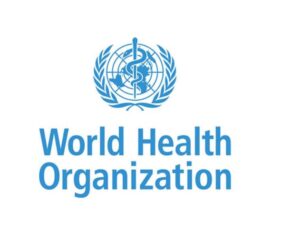The National Agency for Food and Drug Administration and Control (NAFDAC) has reaffirmed its commitment to enforce the ban on the production and sale of alcoholic beverages in sachets and small bottles by December 2025.
This was announced by the Director General of NAFDAC, Mojisola Adeyeye at a press briefing in Abuja on Tuesday, following a new directive by the Nigeria Senate to the agency to implement the ban fully and rule out any further extensions.
The directive followed a motion sponsored by Asuquo Ekpenyong, Senator Representing Cross River South, who raised concern over the repeated postponement of the policy despite the rising health and social problems linked to the consumption of the products.
Mr Ekpenyong recalled that Nigeria had signed a five-year Memorandum of Understanding (MoU) with industry stakeholders, including NAFDAC, the Federal Ministry of Health and Social Welfare, and the Association of Food, Beverage and Tobacco Employers (AFBTE), in 2018 to phase out high-strength alcohol in sachets.
He noted that the agreement expired in 2023 but was extended to December 2025, allowing manufacturers to adjust their production lines.
Alcohol ban
According to Mrs Adeyeye, the ban, which covers spirit drinks packaged in sachets and containers below 200 millilitres, is backed by the Federal Ministry of Health and Social Welfare.
It aims to curb the harmful use of alcohol, particularly among children, adolescents and commercial drivers.
She said the Senate’s resolution aligns with its statutory responsibility to protect public health and ensure that only safe, regulated products are available to Nigerians.
ALSO READ: NAFDAC says ban on alcohol in sachets stands
She urged all stakeholders, including manufacturers, distributors, and retailers, to comply fully with the phase-out deadline, as no further extension will be entertained beyond December 2025.
Public health risk
NAFDAC said the proliferation of high-alcohol-content beverages in sachets and small containers had made the products cheap, easily accessible and concealable, leading to rising cases of misuse and addiction among minors.
The agency described the situation as a public health menace linked to domestic violence, road accidents, school dropouts and other social vices across communities
Mrs Adeyeye further explained that the Agency’s decision was rooted in scientific evidence and public health considerations.
“This ban is not punitive; it is protective. It is aimed at safeguarding the health and future of our children and youth,” she said. “We cannot continue to sacrifice the well-being of Nigerians for short-term economic gain. The health of a nation is its true wealth.”
NAFDAC stated that it would continue to collaborate with the Federal Ministry of Health and Social Welfare, the Federal Competition and Consumer Protection Commission (FCCPC), and the National Orientation Agency (NOA) to implement nationwide sensitisation campaigns on the health and social dangers associated with alcohol misuse.
“NAFDAC remains resolute in its mission to ensure that only safe, wholesome and properly regulated products are available to Nigerians,” Mrs Adeyeye said.










